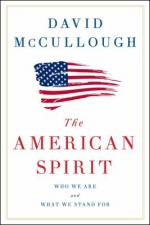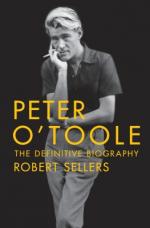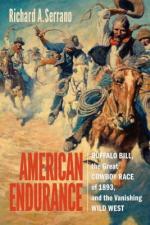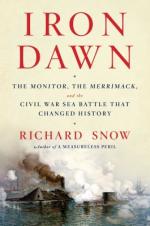September 6, 2017 | madame librarian
This month we've read a collection of essays by Pulitzer Prize winner, David McCullough, the real story about America's 'Wild West', the 1947 World Series--the first to be televised, and two thrillers.
This collection of speeches by historian David McCullough reminds us of fundamental American principles. Over the course of his distinguished career, David McCullough has spoken before Congress, the White House, colleges and universities, historical societies, and other esteemed institutions. Now, as many Americans engage in self-reflection following a bitter election campaign that has left the country divided, McCullough has collected some of his most important speeches in a brief volume that articulates important principles and characteristics that are particularly American.
A revolutionary new appraisal of the Old West and the America it made The open range cattle era lasted barely a quarter-century, but it left America irrevocably changed. These few decades following the Civil War brought America its greatest boom-and-bust cycle until the Depression, the invention of the assembly line, and the dawn of the conservation movement. It inspired legends, such as that icon of rugged individualism, the cowboy. Yet this extraordinary time and its import have remained unexamined for decades. Cattle Kingdom reveals the truth of how the West rose and fell, and how its legacy defines us today. The tale takes us from dust-choked cattle drives to the unlikely splendors of boomtowns like Abilene, Kansas, and Cheyenne, Wyoming. We venture from the Texas Panhandle to the Dakota Badlands to the Chicago stockyards. We meet a diverse array of players--from the expert cowboy Teddy Blue to the failed rancher and future president Teddy Roosevelt. Knowlton shows us how they and others like them could achieve so many outsized feats: killing millions of bison in a decade, building the first opera house on the open range, driving cattle by the thousand, and much more. Cattle Kingdom is a revelatory new view of the Old West.
February 4, 2017 | madame librarian
Peter O'Toole was supremely talented, a unique leading man and one of the most charismatic actors of his generation. Described by his friend Richard Burton as "the most original actor to come out of Britain since the war," O'Toole was also unpredictable, with a dangerous edge he brought to his roles and to his real life. With the help of exclusive interviews with colleagues and close friends, Robert Sellers' Peter O'Toole: The Definitive Biography paints the first complete picture of this complex and much-loved man. The book reveals what drove him to extremes, why he drank to excess for many years and hated authority, but it also describes a man who was fiercely intelligent, with a great sense of humor and huge energy. Giving full weight to his extraordinary career, this is an insightful, funny, and moving tribute to an iconic actor who made a monumental contribution to theater and cinema.
Pulitzer Prize-winning journalist and author Richard A. Serrano's new book American Endurance: The Great Cowboy Race and the Vanishing Wild West is history, mystery, and Western all rolled into one. In June 1893, nine cowboys raced across a thousand miles of American prairie to the Chicago World's Fair. For two weeks they thundered past angry sheriffs, governors, and Humane Society inspectors intent on halting their race. Waiting for them at the finish line was Buffalo Bill Cody, who had set up his Wild West Show right next to the World's Fair that had refused to allow his exhibition at the fair. The Great Cowboy Race occurred at a pivotal moment in our nation's history: many believed the frontier was settled and the West was no more. The Chicago World's Fair represented the triumph of modernity and the end of the cowboy age. Except no one told the cowboys. Racing toward Buffalo Bill Cody and the gold-plated Colt revolver he promised to the first to reach his arena, nine men went on a Wild West stampede from tiny Chadron, Nebraska, to bustling Chicago. But at the first thud of hooves pounding on Chicago's brick pavement, the race devolved into chaos. Some of the cowboys shipped their horses part of the way by rail, or hired private buggies. One had the unfair advantage of having helped plan the route map in the first place. It took three days, numerous allegations, and a good old Western showdown to sort out who was first to Chicago, and who won the Great Cowboy Race.
No single sea battle has had more far-reaching consequences than the one fought in the harbor at Hampton Roads, Virginia, in March 1862. The Confederacy, with no fleet of its own, built an iron fort containing ten heavy guns on the hull of a captured Union frigate named the Merrimack. The North got word of the project when it was already well along, and, in desperation, commissioned an eccentric inventor named John Ericsson to build the Monitor, an entirely revolutionary iron warship—at the time, the single most complicated machine ever made. Abraham Lincoln himself was closely involved with the ship’s design.




